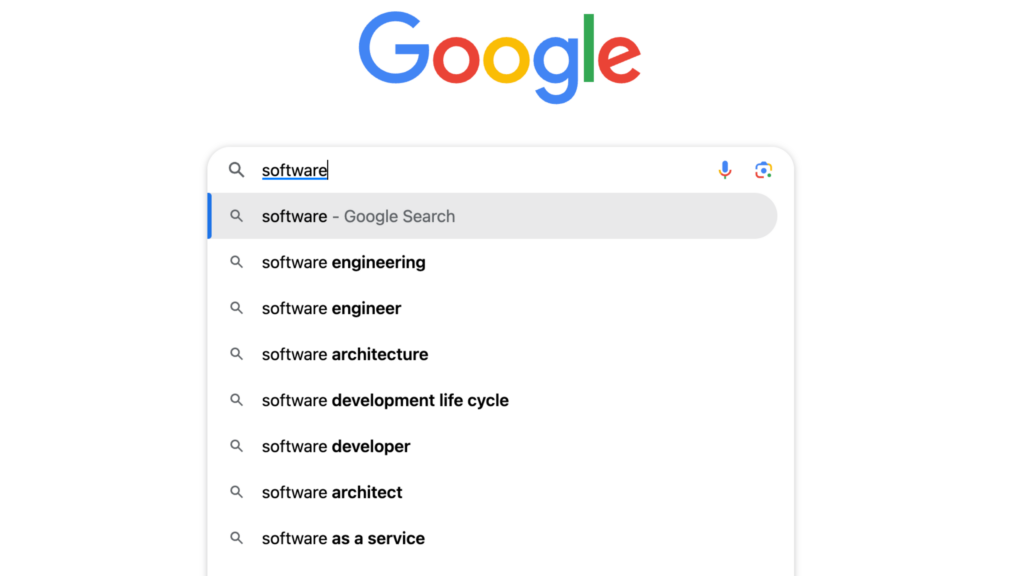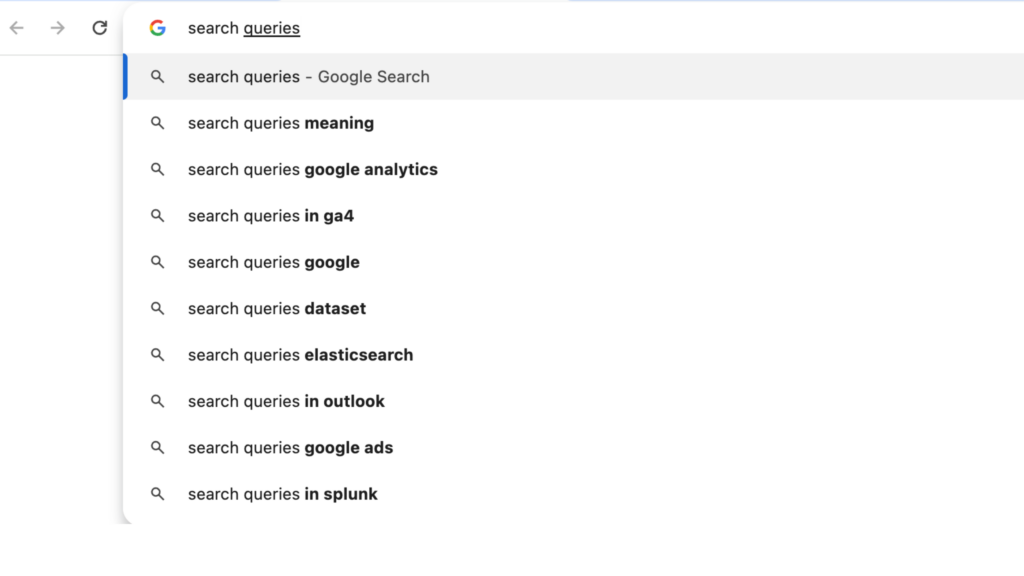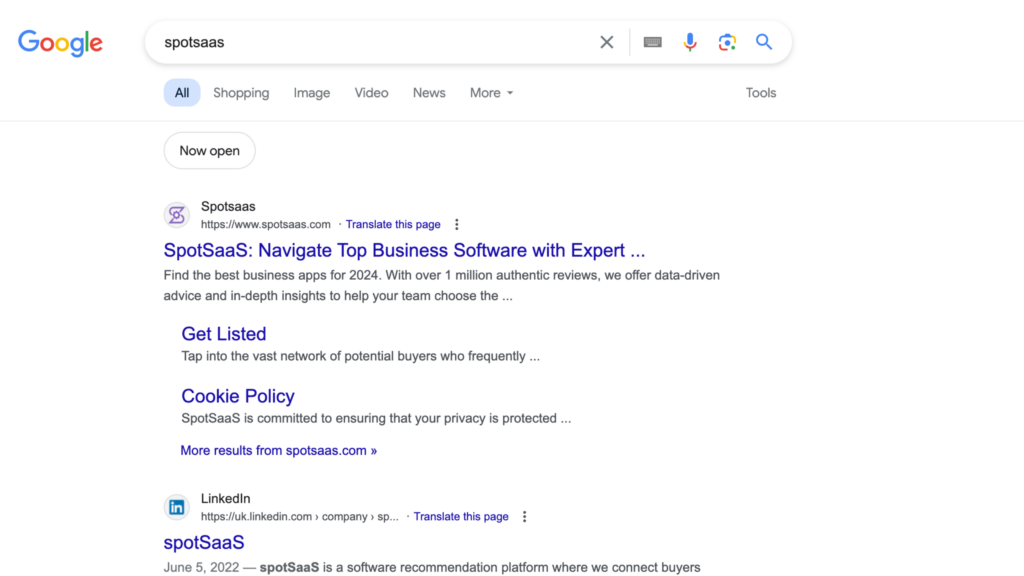Google processes 8.5 billion searches per day, or 5.9 million searches per minute (Statista, 2023). On mobile devices, the average click-through rate (CTR) is 22.4% for the top 1 search result, 13% for the 2nd position, and 10% for the third position. The 10th position only receives 2.3% of clicks (Semrush, 2023).
By understanding exactly about search queries, you can create content that better meets your audience’s needs.
What is a Search Query?
A search query is a word and phrase people type into a search engine to find information. It can be simple (like “software”), more complex (like “software for small business”), or very very complex (“software for small business invoices Canada”).
Search queries can be a single word, a phrase, a sentence, or a question like “how to choose the best SEO software”.

The Difference between Keywords and Search Queries
Search queries are the actual words or phrases people type into search engines like Google and YouTube (YouTube is the second-biggest search engine globally, after Google). They can be short and simple or long and complex. Search queries may even break all grammar and spelling rules.
On the other hand, keywords are the terms businesses target in their content and online marketing campaigns.
For example, “accounting software” is identified as a keyword, while the search query could be “best accounting software for small business free”. (“accounting software” could be also a search query, of course.)
In SEO, marketers can target new keywords by analyzing search queries and then tailor their content to better match what people actually are searching for.
The Connection between Search Queries and Search Intent
“Search intent” is why someone types a particular “search query” into a search engine.
The user searches for “best help desk software” to navigate services or brands while “search queries” to find information.
3 Main Types of Search Queries
There are three main types of search queries: informational, navigational, and transactional. Each of them shows the reason behind the user search query. By recognizing these query types, marketers can create content that better meets their audience’s needs, improves user experience, and leads to higher engagement and sales.
Informational search queries
An informational search query refers to looking for information. This is why you search “search queries”, right? You only want to find an answer to a specific question. Nothing else. You’re not trying to make a purchase or visit a specific website.
Tips & tricks: Questions queries are often informational queries (eg. “what is communication technology“)

Navigational search queries
A navigational search query is typed to find a particular website or brand and navigate to it. Examples of navigational search queries are “LinkedIn”, “Forbes” and “spotsaas” (our website🙂).
Tips & tricks: Navigational queries typically include specific brands or product names.
Transactional search queries
A transactional search query indicates the intent to perform a transaction, such as making a purchase. These queries are very important to businesses with an online presence.
Tips & tricks: Transactional search queries contain specific brands or products, like “iPhone 15 pro max” or include terms like “buy” or “order”.

Conclusion
In fact, a remarkable part of Google’s trillions of daily searches has never been searched before. Search queries are key to how people use search engines to find what they need. Understand this to optimize and create targeted content. SEO tools like Semrush and Ahreft can help you with keyword research and rank tracking as well.
Also read Most Useful SEO Chrome Extension
(Image credit: spotSaaS)





